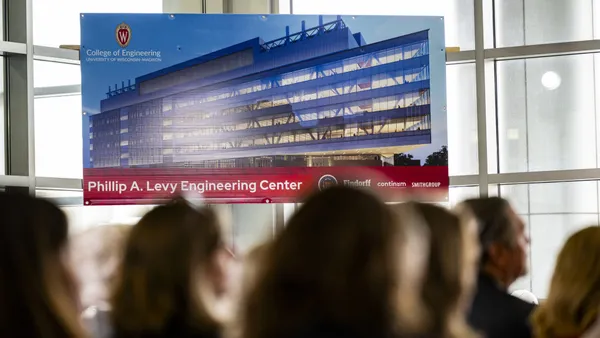Dive Brief:
- The Massachusetts Institute of Technology’s Center for Real Estate has launched the MIT Real Estate Innovation Lab, which will explore new building design concepts, 3-D printing, modular construction and data for buildings and cities.
- The lab will be led by professors from the research institution’s urban design and planning department and its real estate finance and engineering systems department. Real estate services firm JLL is a founding partner
- One of the lab’s first projects is to build a real estate database for New York City that will include rents, mortgages, vacancies, Airbnb locations, coworking spaces, subway lines, fiber-optic cables and more.
Dive Insight:
Data-driven cities — in which a proliferation of sensors and other devices in roads, power grids, buildings and more gather information about performance and wear — is the future for residential and commercial real estate, according to a report last week from PricewaterhouseCoopers and the Urban Land Institute.
One example of this is the proposed $500 million Gramercy District, a 2.5 million-square-foot smart city in Ashburn, VA, which will be one of only a handful of smart cities in the U.S. when its first phase is complete in 2018. The project aims to entwine technology and real estate, allowing residents to engage with their surroundings via their mobile phone.
However, the PwC and ULI report noted that investment in innovation around smart cities tends to focus on wealthier markets and submarkets, depriving poorer areas of necessary investment. Companies are beginning to consider this trend and are locating corporate campuses in neighborhoods in need of economic revitalization, while local governments are instituting inclusionary zoning rules that require more affordable housing.
In September, the White House announced an $80 million investment in smart city technology with an emphasis on mitigating the effects of climate change.
For more housing news, sign up for our daily residential construction newsletter.













